Cycling / Mobility / Women
Empowering Women in Cycling
Written By Dagmar Köhler and Angela van der Kloof
Have you ever been in a meeting room where you felt like the lone voice, or perhaps the sole perspective in a sea of voices? Or conversely, have you ever joined a virtual gathering with hundreds of participants and felt an immediate sense of belonging and shared energy?
If you’ve experienced either scenario, chances are you joined the recent “Women in Cycling” webinar, organized jointly by its founding members Cycling Industries Europe (CIE), the European Cyclists’ Association (ECF), Velokonzept, and Mobycon. The webinar took place on March 13, 2024 and brought together cycling enthusiasts and experts from literally around the globe.
The goal of the meeting was to address diversity in the cycling sector – where do we stand, what should we do, and why does it matter?
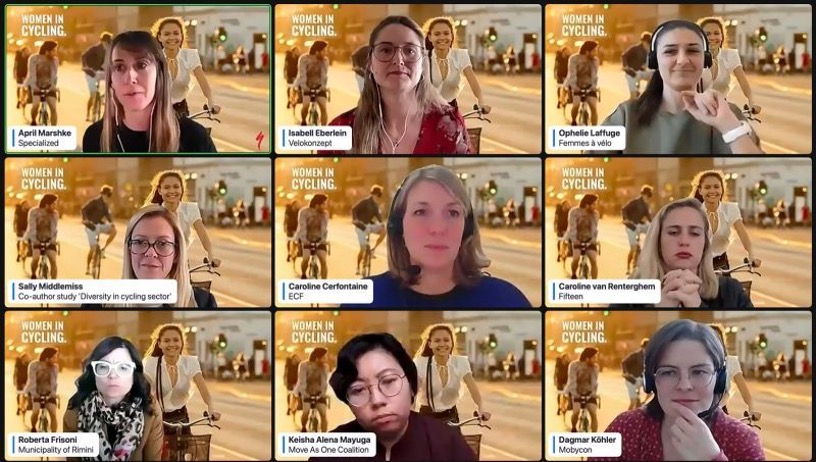
During the event, we had the privilege of moderating the panel debate titled “Towards more diversity in the cycling sector.” Featuring strong inspiring women such as Roberta Frisoni, Caroline Cerfontaine, Caroline van Renterghem, and Keisha Alena Mayuga, the discussion sparked profound insights and reflections. The lively participation from attendees worldwide underscored the pressing need for inclusivity and representation in cycling.
Elke Van den Brandt, Vice Mayor of Brussels Capital region, opened the webinar with a sharp analysis of how Brussels’ transport system had been organized to best cater to people commuting by car to work – a male dominated user pattern – and how she is trying to avoid repeating the same mistake in cycling.
Sally Middlemiss then presented facts and recommendations from the UK Bicycle Association’s study “Diversity in the cycling sector”. Reflecting on the report, Caroline van Renterghem, Director of Fifteen Bike Share Company, emphasized the importance of representation at leadership levels within the cycling industry. Roberta Frisoni, Deputy Mayor of Urban Planning and Transport of Rimini, discussed the role of women in political power in shaping inclusive policies. The famous Italian seaside resort is currently transforming a 15-km-long waterfront into an “Urban Sea Park”, featuring safe access for all and, among other things, creating playgrounds that cater to diverse needs (more about Rimini can be read here).
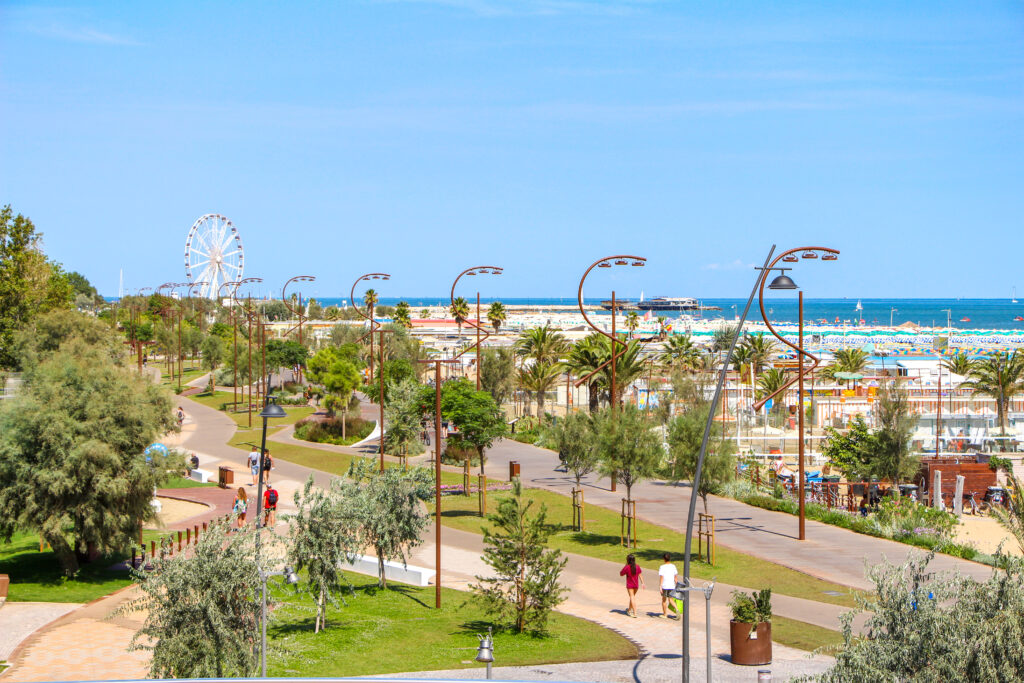
Image source: https://ecf.com/news-and-events/news/velo-city-2026-rimini-wins-bid-host-world-cycling-summit
Keisha Alena Mayuga, the brain behind the Philippines’ COVID bike lanes, shared fascinating insights advocating for meeting women’s mobility needs. Caroline Cerfontaine, European Cyclist’s Federation, shared figures of how the representation of women in national and European cycling advocacy has changed in recent years.
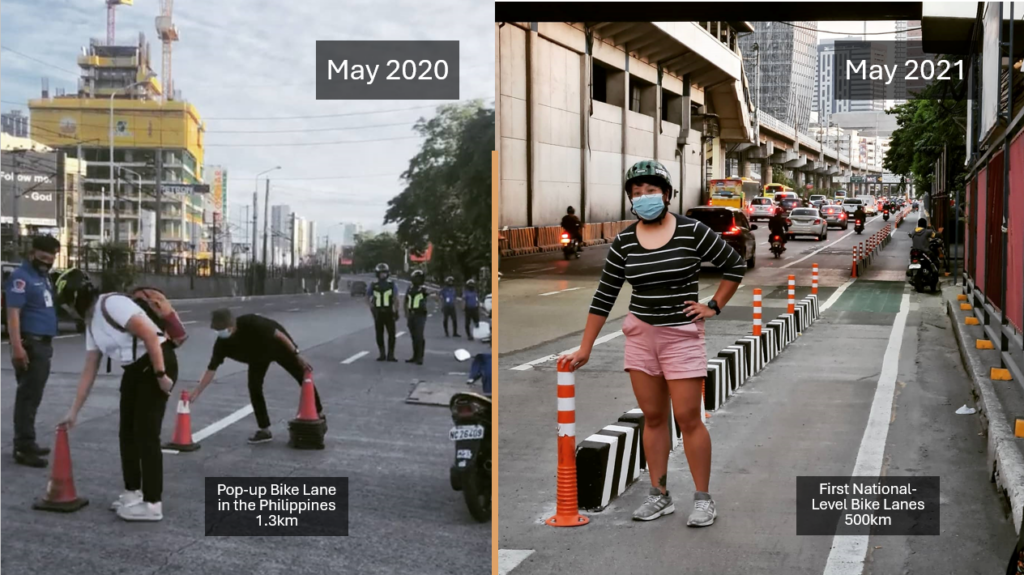
As we reflect on the webinar and our ongoing commitment to diversity in cycling, we are reminded of the importance of collective action. When else do two vice mayors juggle their agendas and make everything possible to make sure they can contribute to an international webinar?
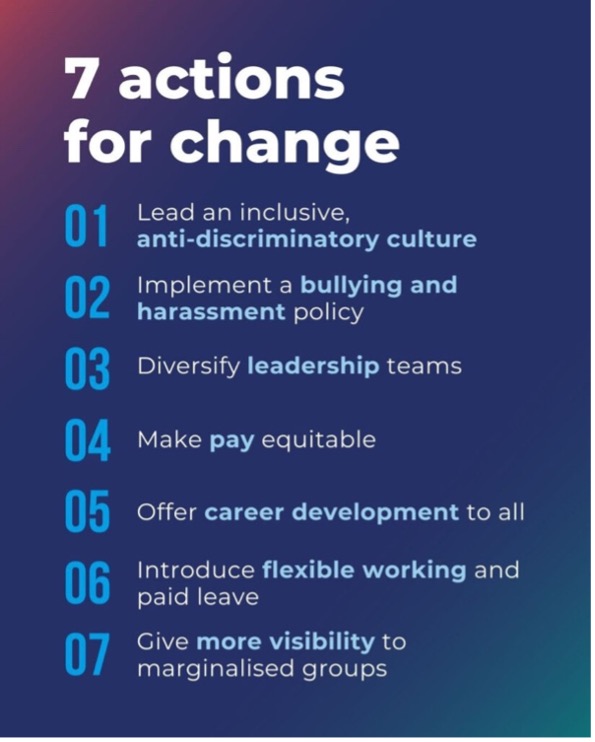
As founding members of Women in Cycling and Women in Cycling Germany, and as signatories of the European Women in Transport charter, Mobycon commits to promoting gender equality and equal opportunities in all aspects of our work. Yet, our team, too, has to continuously challenge itself: Which perspective are we missing right now?
In conclusion, the journey towards empowering women in cycling is ongoing. Whether through designing inclusive infrastructure or advocating for policy changes, we are committed to driving positive change in the cycling sector. We invite you all to join us in championing change and pedaling towards a brighter, more equitable future for all cyclists.
Watch the recording of the webinar here: https://www.youtube.com/watch?v=-52O2KyqecA
Interested in learning more about our work in women in cycling? Reach out to us here.
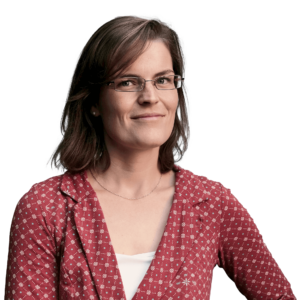 ">
">Dagmar Köhler
“Transport is not an end in itself but a key enabler to live, work, participate and thrive. In most parts of the world the potential of active travel is yet to be elevated. I am committed to help cities in Germany and abroad to connect with the Dutch experience and reflect on overarching goals and local necessities.”

